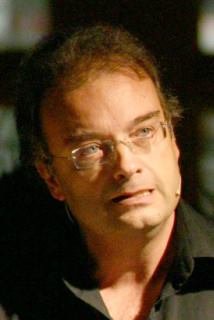

Once the oppressive regimes of Ben Ali and Mubarak had been overthrown, they did not know how to replace them.Įven when strong models did exist, many revolutions failed. These revolutions, however, no longer identified themselves with past models - socialism, national liberation, pan-Arabism -which are now obsolete, exhausted, or defeated, and they did not really know where they were going. On the contrary, there have already been some in recent years - just think of the “Arab Spring”. This does not mean that there will be no more revolutions. It is this turn of events that prevents the new movements from fitting into a historical continuity. This vision is light years away from our intellectual universe today.

For a century, history seemed to be running towards socialism, whose premise was the conquest of power by military force. It means that the cycle of revolutions in the twentieth century has come to an end and that we are living the consequences of this change. What does it mean not to have a memory of revolution? Reconstructing its history and semantic shifts will perhaps help us understand that it remains a compass for our time. The new social and political movements have considerable potential, but they are the offspring of a historical turning point that has evacuated the utopian horizon of the past, identified precisely with the idea of revolution.

Rather, it is a question of coming to terms with the “sense” of history that is today dominant. Obviously, it is not a matter of blaming young people for their lack of historical memory. How is it possible to create a revolutionary political tradition, under these conditions? You write that the movements over the last fifteen years, and perhaps even longer than that, have not manifested a historical memory, yet they are not prisoners of the past and they need to reinvent themselves. This “horizon of expectations” has vanished. In the century of the “principle of hope,” communism had become a concrete and possible utopia, in Ernst Bloch’s sense. This was, indeed, the age of revolutions, not just wars and totalitarianism. I am convinced that this eclipse has its origin - far from questions of the communicative strategies of politics and the culture industry - in the defeat of the revolutions of the twentieth century. We are well past the era when a historian like Eric Hobsbawm made it the key to interpreting modernity. The concept of “revolution” changes, as do its political uses. This metamorphosis is also significant in the field of historiography, where the idea of “fascist revolution” - itself belonging to fascist rhetoric - is widespread, while the revolutionary dimension of events such as the Spanish Civil War or the Paris Commune tends to be ignored. Today, the word “revolution” refers to the latest model of iPhone and “reform” to some socially regressive measure related to the introduction of neoliberal management (hence labour reforms, reforms to the healthcare system, university reforms and so on). There was a time when the Left had to choose between reform and revolution. There has been an obfuscation of the word “revolution,” which has become devoid of content, an empty signifier. In what sense is revolution still a “strategic hypothesis” today, as Bensaïd argued? Whereas those who would be in favour of revolution are silent. Today, the enemies of political and social revolution speak of “revolution” when they are selling the latest model of smartphone, the latest brand of toothpaste, or running for election. Il manifesto met up with him in Rome during a recent visit in which he presented his book. Traverso, one of Italy’s foremost historians of ideas, now teaches at Cornell University. Not as a model, not as a prefabricated schema, but as a strategic hypothesis and a regulating horizon.” These words by the philosopher Daniel Bensaïd begin Enzo Traverso’s new book, soberly entitled Revolution: An Intellectual History. “Revolution - without icons and without capital letters - remains a necessity, as an indeterminate idea of change and as the compass for human will. The interview originally appeared in the Alias section of il manifesto, 9 July 2022 and was published in the Verso books blog,, translated by David Broder. Historian Enzo Traverso on his latest book, Revolution: An Intellectual History.


 0 kommentar(er)
0 kommentar(er)
